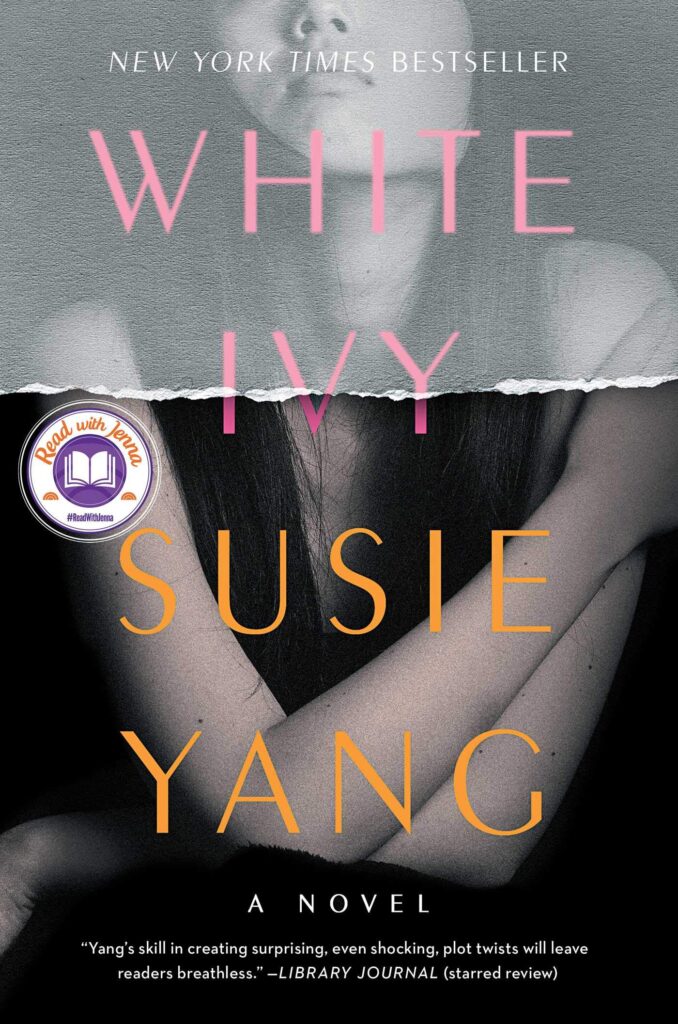Most readers have at least one thing that turns them off when they’re reading. Maybe they have trouble with anything that feels fantastical. Maybe they do not enjoy unlikable characters. Maybe they can’t read books that don’t have quotation marks. Whatever it is, that one thing can bring the reading experience down a notch. For me, it’s inconsistent characters. I have a hard time when a character does something that seems, well, out of character. It distracts me and detracts from my immersion into the book. I think White Ivy, by Susie Yang, fell into that category. It’s a complicated, propulsive read, but in the end I was confused by Ivy, the main character.
Why I picked it up: I’ve had my eye on White Ivy since I heard about it, and it was my December BOTM add-on.
Ivy Lin grew up outside Boston with her Chinese immigrant parents. Raised in an austere, unaffectionate household, Ivy idolized the affluent American families around her and longed to fit in and be accepted. In particular, she developed a crush on a classmate, Gideon Speyer, and was starting to develop a friendship with him when her mother discovered her lying and sent her to China for the summer to live with family. When Ivy returned, her parents had uprooted the family and moved to New Jersey. Later in her life, Ivy crossed paths with Gideon, triggering those same desires. White Ivy tracks their relationship as Ivy tries to reconcile her past and her roots with the life she aspires to live.
So much to unpack in this book. First, the writing is fantastic. I loved Yang’s use of small details that brought the story into sharp focus for me – the power of driving an expensive car through the snow, the yellowed necks of boxy t-shirts in her childhood bedroom, the “decisive click of a lighter”. White Ivy is just a beautifully written book.
Ivy’s motivations and actions are what gave me trouble. Ivy was trapped between two worlds – the struggle and striving of her hardscrabble immigrant upbringing and the solidity of Gideon’s patrician, blue blood family – and while she desperately wanted to be part of the latter, she couldn’t shake her roots in the former. I get that the tension between these two poles led her to contradictory behaviors, but I still found her maddeningly inconsistent. She desperately wanted Gideon but repeatedly sabotaged their relationship. A smart and resourceful woman, Ivy wanted to be respectable and successful but made no move to achieve that on her own. She craved security and unconditional love but was unable to give it herself. This dichotomy was arguably the propulsive force of the story, but as a reader I felt too much whiplash. Again, consistency is my game.
White Ivy is a suspenseful, immersive character-driven book. It’s marketed as a sort of thriller about obsession, but that’s not what it is at all. It’s a dark tale about a woman desperately trying to find her place in the world and the “elusive divide between familiarity and admiration, intimacy and enigma”, as the author put it. I recommend White Ivy with the caveats above; it’s not a perfect book, but it is definitely a worthwhile read.
White Ivy was book #5 of 2021 and satisfies the Debut Novel category of the 2021 EDIWTB Reading Challenge.











About Me
I have been blogging about books here at Everyday I Write the Book since 2006. I love to read, and I love to talk about books and what other people are reading.